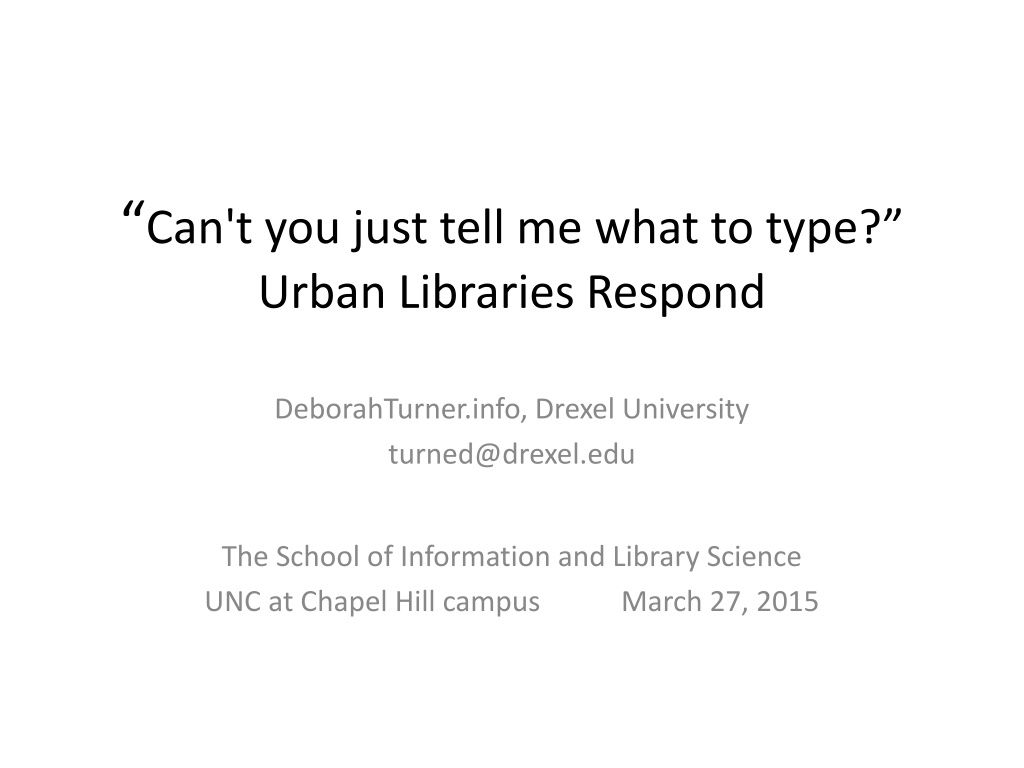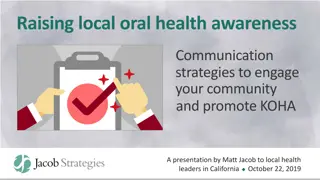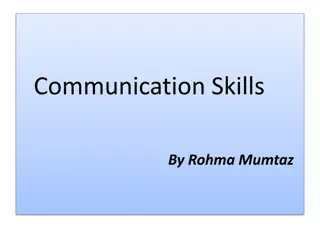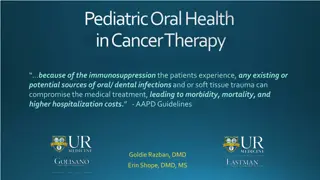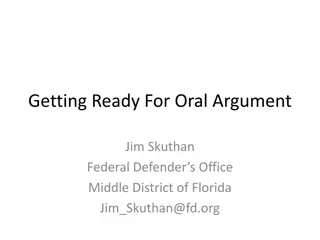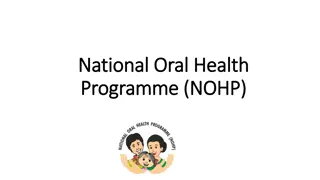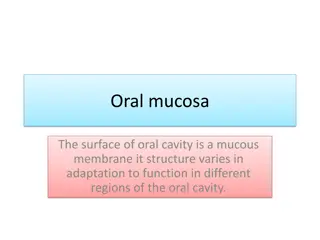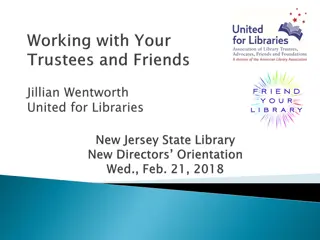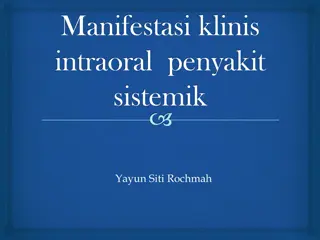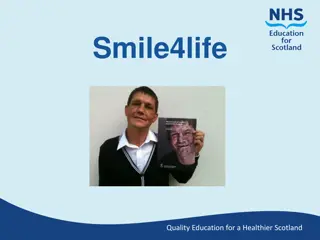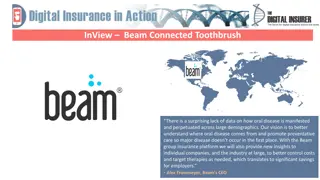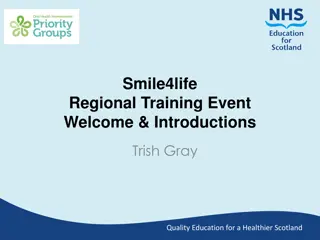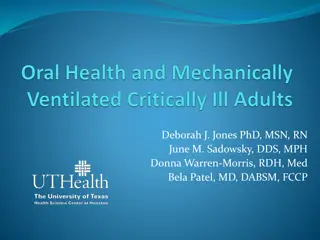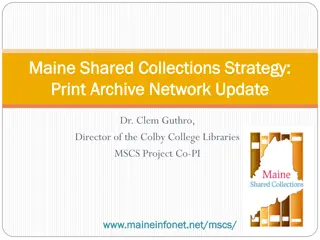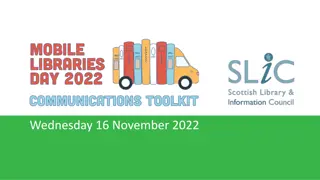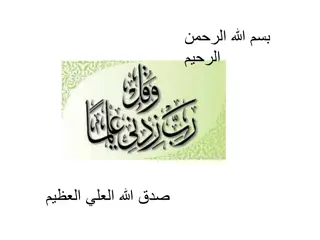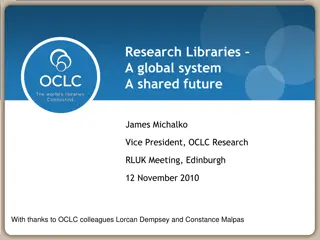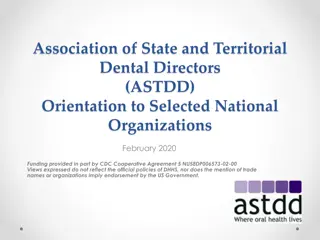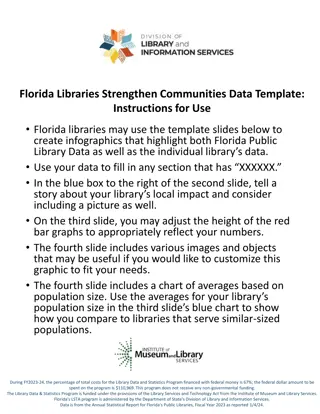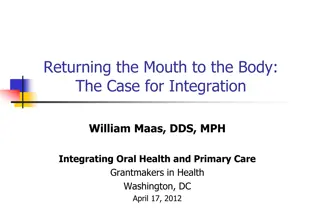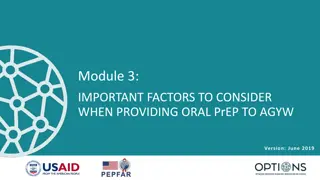Understanding the Importance of Oral Communication in Modern Libraries
Deborah Turner from Drexel University presented research on the impact of oral communication in libraries, highlighting the significance of verbal interaction in a digital age. The study emphasizes the preference for personal interaction, especially among certain demographic groups like teens, seniors, and working parents. The presentation explores the role of libraries in adapting services to cater to individuals who value conversation and relationship-building. Turner discusses the implications of voice-activated technologies and the need for libraries to recognize and address the diverse communication needs of their patrons.
Uploaded on Oct 06, 2024 | 0 Views
Download Presentation

Please find below an Image/Link to download the presentation.
The content on the website is provided AS IS for your information and personal use only. It may not be sold, licensed, or shared on other websites without obtaining consent from the author. Download presentation by click this link. If you encounter any issues during the download, it is possible that the publisher has removed the file from their server.
E N D
Presentation Transcript
Can't you just tell me what to type? Urban Libraries Respond DeborahTurner.info, Drexel University turned@drexel.edu The School of Information and Library Science UNC at Chapel Hill campus March 27, 2015
Whats she talking about? the oral present defined how people talk today distinct from oral history/tradition builds on orality studies (Ong, Finneman, Turner) Deborah Turner, CRADLE Talk, UNC, March 2015, slide 2 of 12
Why it matters Some still (strongly) prefer to talk when o obtaining new information o building relationships o adopting IT o conveying important information ICTs increasingly rely on voice-activation (Siri, Cortana, voice command mode) Deborah Turner, CRADLE Talk, UNC, March 2015, slide 3 of 12
the research project Given how equipment, space, and staffing are increasingly designed to get patrons to access content and resources online and some customers/patrons/users prefer oral information RQ: how can libraries design services in recognition that some just want to talk? Deborah Turner, CRADLE Talk, UNC, March 2015, slide 4 of 12
method Participant Action Method (3 stages) Central administrators and branch managers 8 individual interviews 1 small group interviews Semi-structured interview protocol was designed to ensure responses to some uniformed questions: Deborah Turner, CRADLE Talk, UNC, March 2015, slide 5 of 12
data CPL s underserved: teens, seniors, working parents those without options [for getting information they need] No single demographic is monolithic. To (determine and) deliver needed information, form relationships. Coordinate with service agencies Deborah Turner, CRADLE Talk, UNC, March 2015, slide 6 of 12
data (continued) Teens are like smoke. You can see a cloud of it, and then you walk into it and you can t find a teen anywhere. to make sure that the needs of the community are being met, people do want that one on one. They want those conversations. They want to know who you are and whether they can trust you before you can show them anything. If you don t have time to talk to them for a few minutesabout what s going on in their life, or listen to them I have seen this. I ve witnessed it. They ll turn around and walk back out the door. Relationship is very important. Deborah Turner, CRADLE Talk, UNC, March 2015, slide 7 of 12
discussion Conceptual implication: recognize the increasing blurred ling between service provision and information dissemination Teaching implications: redefine liaison librarian ? reference interview advocacy Deborah Turner, CRADLE Talk, UNC, March 2015, slide 8 of 12
discussion (continued) Practical implications: advocate surrounding new collections adapt space management practices lend space? adapt HR practices that recognize staff as a resource Note: These implications may inform our teaching. Deborah Turner, CRADLE Talk, UNC, March 2015, slide 9 of 12
conclusion Future research The Oral Present Project year 2: Free Library Philadelphia year 3: Seattle Public Library CHOICES Uganda Deborah Turner, CRADLE Talk, UNC, March 2015, slide 10 of 12
Acknowledgements IMLS The Oral Present, Urban Library Services, and the Underserved (Grant # RE-07-14-0051) Cleveland Public Library Adam Townes, Doctoral Candidate Tim Gorichanaz, Doctoral Student/RA Center for the Study of Libraries, Information, and Society (Drexel) Deborah Turner, CRADLE Talk, UNC, March 2015, slide 11 of 12
Thank you deborahturner.info http://cci.drexel.edu/faculty/dturner/OralPresent/index.html @theoralpresent
